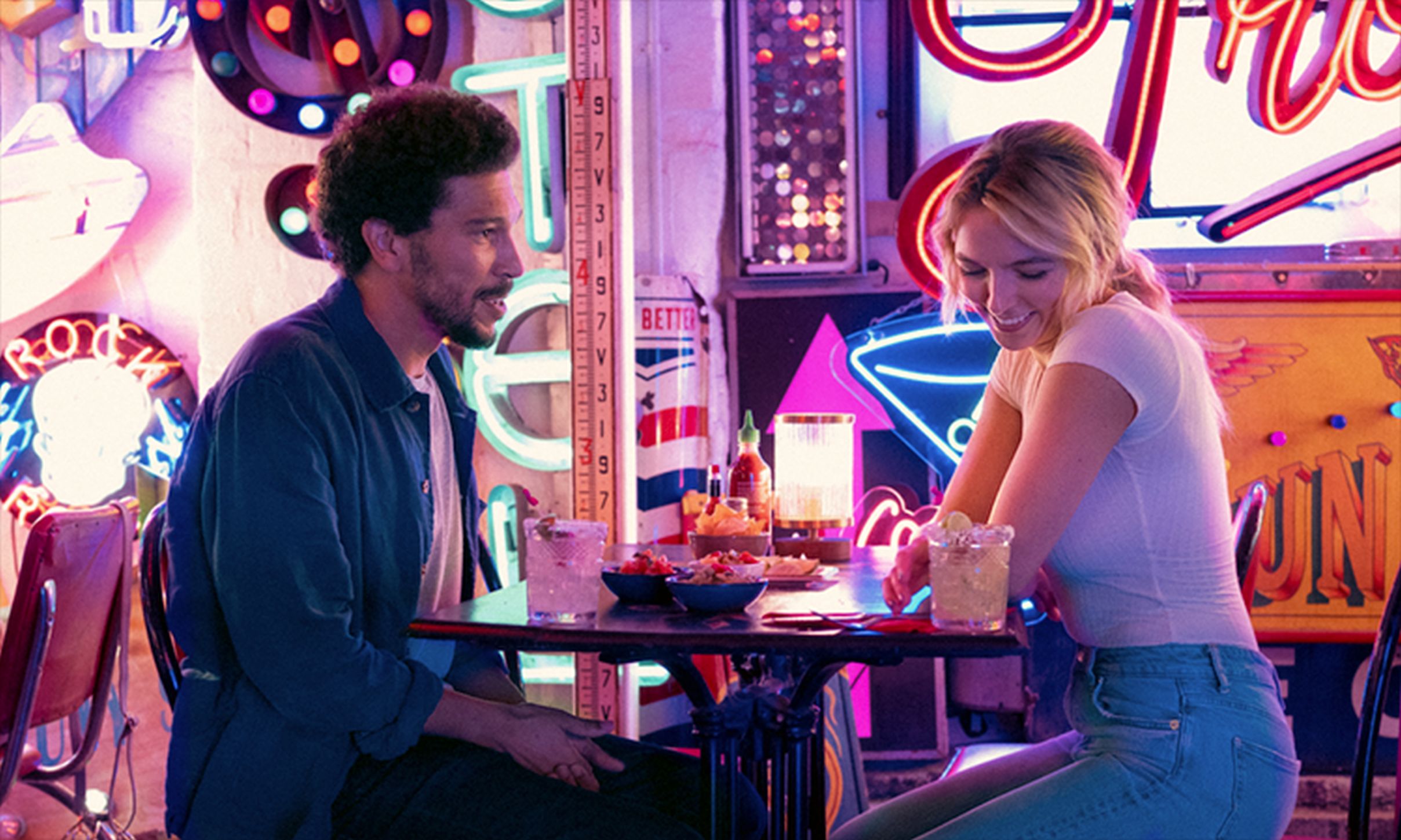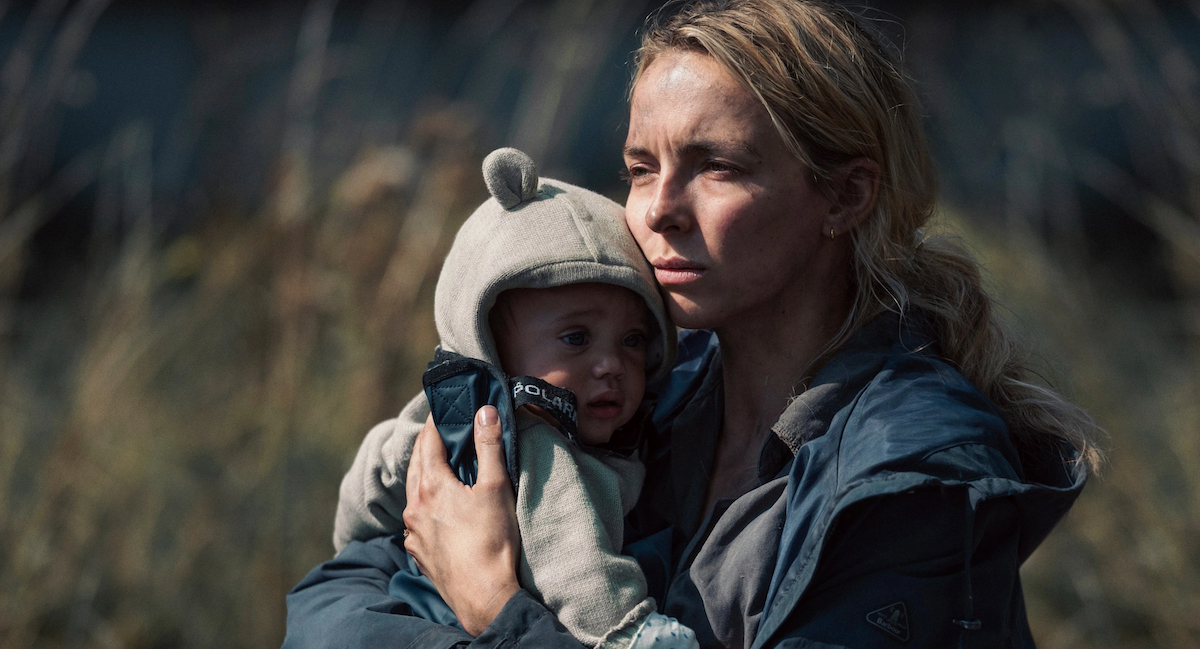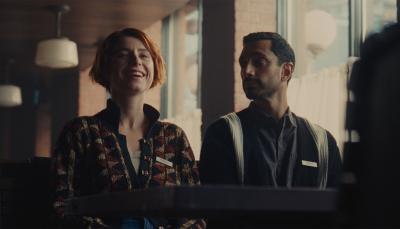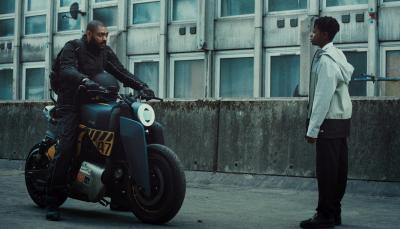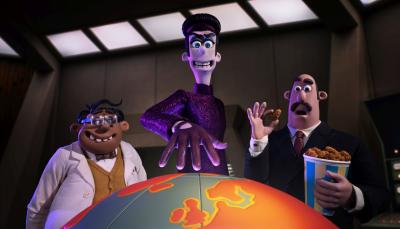'The End We Start From' Deadens Its Own Effectiveness
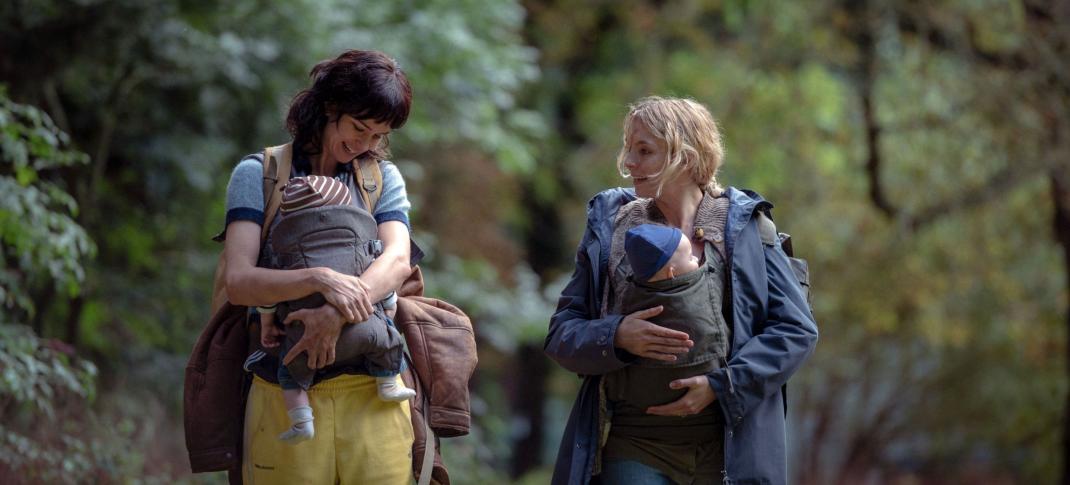
Katherine Waterston as O and Jodie Comer as Mother in 'The End We Start From'
Signature Entertainment
It’s unclear whether The End We Start From’s choice not to change the bland, ephemeral title of Megan Hunter’s 2018 novel is bold or unwise. Going into the survival film, you have to process your expectations of the soft-focus, overly minimalistic student relationship drama such a title implies. As it turns out, The End We Start From is a soft-focus, minimalist relationship drama, just one made by fully grown adults. In theory, this could be a great example to see a mature, delicate emotional side to apocalyptic fiction, abstracting recognizable archetypes and dynamics to give the story a universal appeal. In actuality, it’s an exercise in softening a compelling tale to the point of ineffectiveness.
When disastrous flooding hits Great Britain, a small family – a recent mother (Jodie Comer), her partner “R” (Joel Fry), and their days-old baby – join the huge swathes of people dispelled from city life, only to find their relationships fracturing whenever they get close to a new form of security. The mother clings to her child after she’s separated from her neighborhood, her in-laws, and even her partner – they are not two distinct entities but a symbiotic whole seeking the protection of their own definition. It’s refreshing to see an infant in post-apocalyptic fiction where they aren’t treated as a constant, dangerous liability.
Based on a book written pre-pandemic, The End We Start From has a certain prescience – clearly, seeing normality be distressingly upended without explosions, flesh-eating mobs, or gas-guzzling motorcades has a 2023 appeal after a few years of anxiety-inducing health updates, watching people in other rooms uneasily listen to phone calls, and feeling at risk even when our loved ones are close to us.
But The End We Start From hems too closely to a visual and narrative style that washes clean any grit, urgency, or drama outside of isolated moments. Comer injects a frenetic energy into the quiet story; as the film goes on, she seems equally frayed and hardened by the weathering conditions of her upturned life. But the supporting cast feels too fragmented to grasp onto – Nina Sosanya and a refreshingly against-type Mark Strong too briefly appear as R’s parents, and are quickly relegated to off-screen trauma that’s intentionally kept at a distance from the mother’s point of view.
Mahalia Belo (The Long Song) directs a script by Alice Birch (The Wonder) with a visual language that attempts to give a sense of the chipped memories and gasping breaths that come with the end of the world – sudden cuts and handheld close-ups orient/disorient us within our protagonist’s distressed perspective. But it feels too mannered, a cinematic technique that’s been applied to a script rather than naturally growing from it.
Birch’s script is also to blame – in trying to give us characters who feel elemental and represent different survival instincts, all context of why these perspectives are compelling is shorn away. The politics of seeing Britain suffering disastrous flooding is of little interest to Birch and Belo, instead relying too frequently on ineffectual dramatic crutches like “a fireside dance scene,” “woman screaming alone in nature,” and the devastatingly vague, “They all want to forget what happened before.” (Most of these happen within the two scenes Benedict Cumberbatch is present). In trying to craft a unique version of a world in flux, The End We Start From struggles to express itself with a singular, fresh voice.
It’s a misconception to think that the rigid social and political structures that define our normalcy will wash away as soon as life-threatening danger comes for us all (in 2023, we should know this by now!) An apocalypse is not a neutral event – class, property, and ideology are baked into Great Britain’s fabric and should be considered to understand the raw, human ways the country will fall apart.
The End We Start From suffers from being too individualized – we focus too intently on the instincts and interiority of someone as if they are not, like everyone, a systemic composite of the way they have been forced to live in an un-flooded world. Belo’s film clearly thinks that a collage of brief observations and experiences in a world unsure when it’s going to cohere again will add up to something meaningful, or at least something that lasts more than the hours that pass after the poignant final scene.
But these people are kept at such a distance from us, even the ones we feel closest to – the sorority mother feels with “O” (Katherine Waterston) and the tension she feels with an older, isolated commune leader (Gina McKee) linger long enough to hold our attention, but not long enough to bring any real impact. We’re left with a film that’s interested in how human beings react to social and intimate upheaval but not too concerned with what any of that means. It wants to feel like a fable; it feels like an unfinished thesis.
The End We Start From will open in limited-release U.S. theaters on Friday, December 8, 2023. It is unknown as yet where it will stream.

